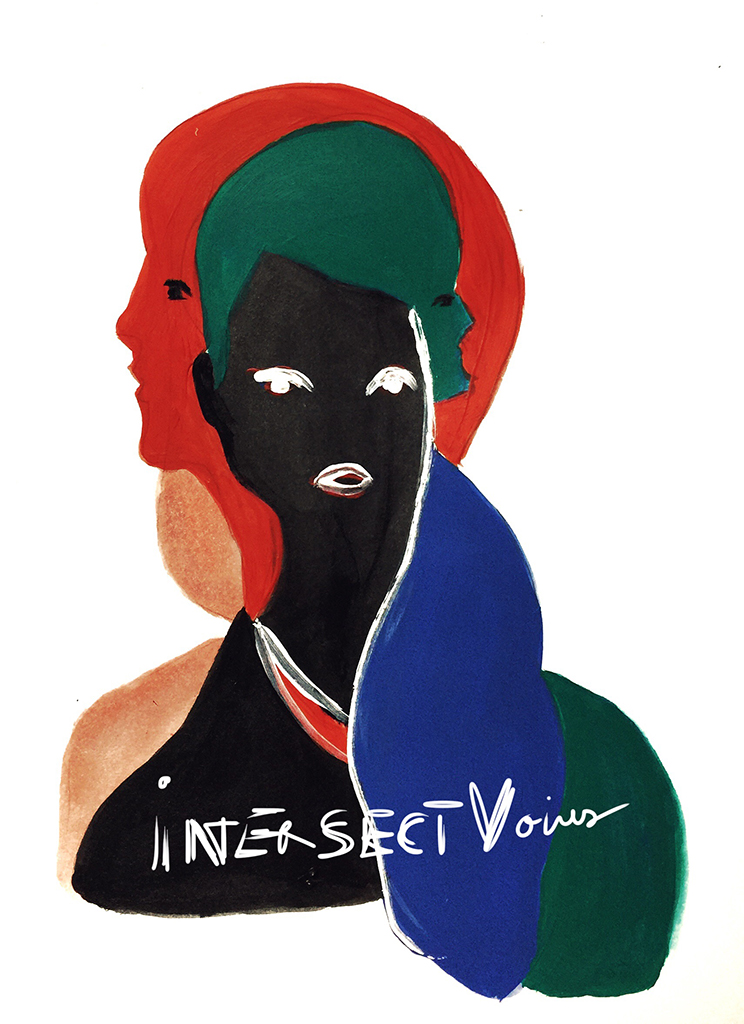Intersect Voices in Europe – combating discrimination against Roma women
The project was funded by the European Union’s Fundamental Rights, Equality and Citizenship (REC) funding program was a period 1.5.2020 – 30.04.2022.

The overall goal of the project
Multiple discrimination refers to a situation or a process in which a person is discriminated against for more than one reason. Intersectionality, in turn, draws attention to identity diversity and intersecting and overlapping forms of differences.
The overall goal of the project is to combat the discrimination faced by Roma women by improving the understanding of the diverse experiences of multiple and intersectional discrimination and by supporting the mobilisation of its victims.
In addition, the project aims at influencing the European Union’s anti-discrimination legislation and policies and improving their implementation. The consortium is formed by civil society organisations from Finland, Italy, and Romania, specialized on Roma women rights and access to justice.
Project description in Finnish
The specific objectives of Intersect Voices are
- to understand the specificity of intersectional discrimination by examining Roma women’s experiences of discrimination. Intersectionality as a concept describes intersecting or crossing differences, i.e. how the status and position of a person in society is affected by gender, but also many other differences and identity markers, such as social class, age, ethnicity and sexual orientation. Some groups are at the same time affected by discriminatory practices related to different categories imposed to them. Such practices of discrimination are poorly understood and more difficult to combat. For example, Roma women who live in illegal settlements are discriminated because they do not have access to decent housing, while on the labour market they are excluded because of their gender, housing status and because of being labelled as racialized “Gypsy woman”.
- to mobilize different actors to combat multiple discrimination at local, national and EU levels.
- to provide support and tools for activists, legislators, and professionals in the field of equality to report cases of multiple discrimination and support the victims.
- to formulate policy recommendations on the integration of intersectionality into anti-discrimination strategies and legislation at national and EU levels.
The project period was 1.5.2020 – 30.04.2022.
Intersect Voices project was funded by the European Union’s Fundamental Rights, Equality and Citizenship (REC) funding program.

The content of this page represents the views of the author only and is his sole responsibility. The European Commission does not accept any responsibility for use that may be made of the information it contains.
Partners
The project is being implemented by four European partner organizations. The coordinator is the Deaconess Foundation. Other partners are:
Asociatia E-Romnja (Asociatia pentru promovarea drepturilor femeilor Rome) – România
Romni Onlus – Italy
Project activities
- Investigating the discrimination experienced by Roma women and girls in Italy, Romania, and Finland, as well as the legislation on multiple and intersectional discrimination in these countries and in the EU.
- Raising awareness of intersectional discrimination through information and campaigns in Bucharest, Brussels, Helsinki, and Rome. In addition, networks are being built among Roma activists both nationally and internationally.
- Training Roma activists, NGO staff, legislators, and lawyers to promote equality for victims of intersectional discrimination. In addition, co-operation between Roma activists and other actors will be strengthened. These include those working on the promotion of gender equality, LGBTIQ rights, migrant rights and legislation.
- Developing policies and practical recommendations at national and European level to prevent and combat discrimination. These are based on the information gathered in the project on the intersectional discrimination experienced by Roma women and girls and the challenges they face.
Project findings and publications about intersectionality
Related links